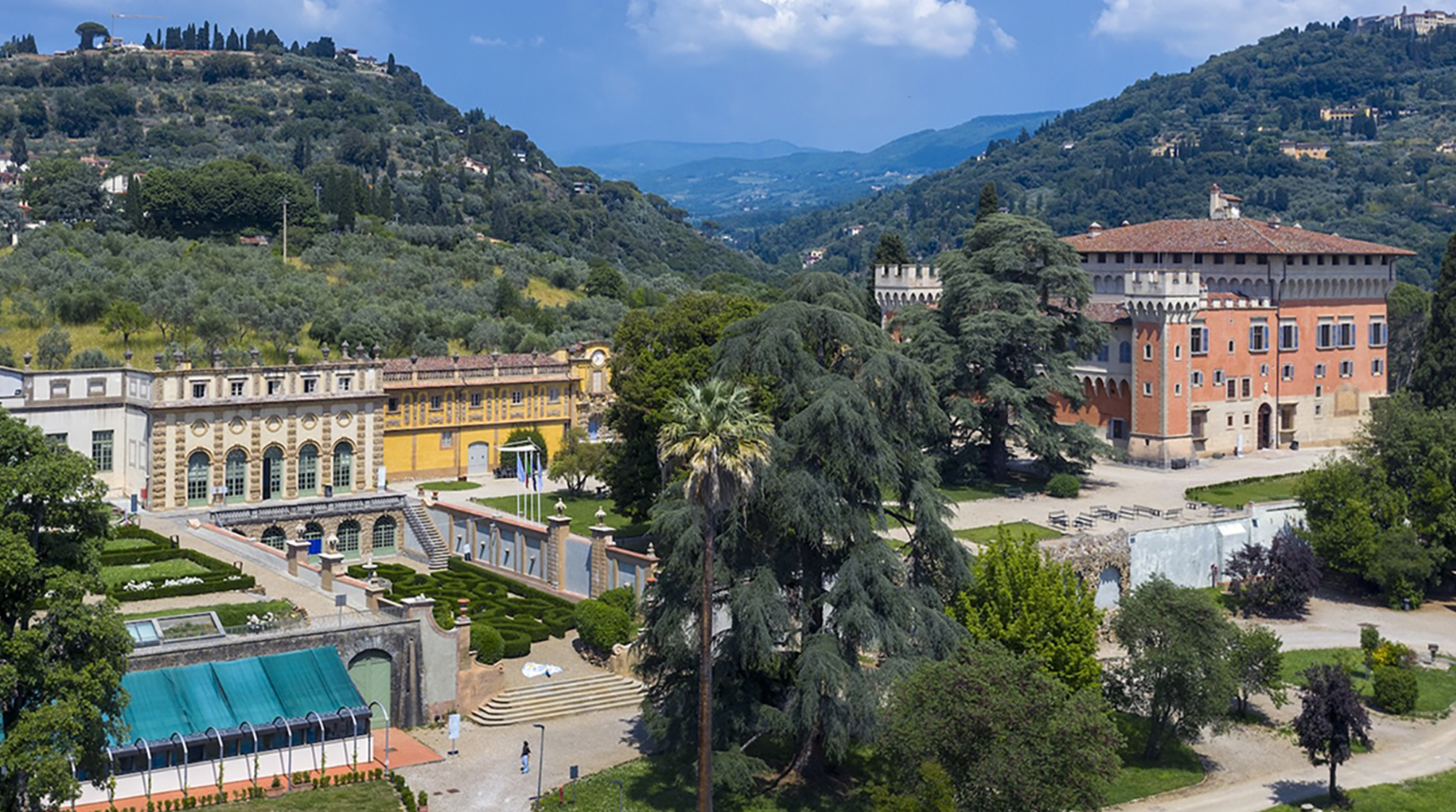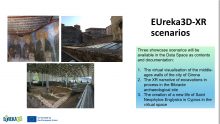an introduction to the Sheffield-based partnership delivering inclusive heritage strategy and policy
Text and images by The Roots and Futures project team, Sheffield
Follow our work on project blog or via our Twitter hashtag #RootsandFutures
Roots and Futures is a Sheffield-based community heritage project that brings University of Sheffield academics from Archaeology and History together in partnership with communities, heritage organisations and decision-makers across the city. Our aim is to co-design, evaluate and embed practices that promote the inclusion of voices from groups currently under-served by Sheffield’s heritage policies and strategies – the city’s Black, Asian and other minority ethnic communities. The ultimate aim of the project is to promote a sense of belonging, wellbeing and inclusion for all communities in the city.
The project is currently funded by the Arts and Humanities Research Council as part of their Place Programme which has invested £850,000 in nine 12-month projects that support cultural and social regeneration across the UK.
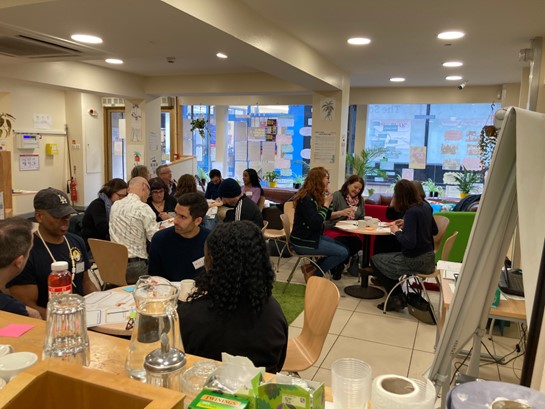
Participants at one of the project’s ‘Discovery Conversation’ events. This and other similar events in Spring 2022 helped co-produce the aims and questions for our community consultation programme, which is running in Summer 2022.
A Project Built on Partnerships
Roots and Futures is a partnership with eight community organisations from across Sheffield, each of which has taken an instrumental role in designing the project aims, generating insights into community needs and deciding how we deliver our project outputs. The consultation activities we are undertaking with each community partner are varied, the result of a co-production process that has sought to deliver what communities want, understand and respect their distinctive needs and give something back that reflects our gratitude for their labour and investment in this work.
With community anchor organisations Zest and SOAR we are working with their community champions in geographically-specific parts of the city to consult with majority Muslim and Arabic-speaking populations including Somali, Yemeni and Pakistani communities. With Zest, these consultations take place at a weekly tea tent which they set up around parks and other green spaces in the northern part of the city centre. The collaboration with Zest began in the first stage of the project, and our work together since 2020 is presented in this booklet.
In collaboration with SADACCA and Manor and Castle Development Trust we are working with largely older people from the African and Caribbean communities who have asked to share meals, perspectives and stories, and for support to share personal histories in a more public setting such as Sheffield’s many museums or in permanent online archive spaces.
Through our collaboration with Astrea Academy and through the refugee, asylum seeker and young people’s Happy Group, run by the RUBIC² project ChilyPep we are exploring how young people want their heritage to be taught, celebrated and shared in Sheffield and how youth activism can help to create a platform for their views.
The project has supported Roma charity Care for Young People’s Future to deliver a new programme called Welcoming Cultures which has reached a wide range of communities united by their desire to share and celebrate the many cultural heritages across Sheffield. With the help of Sheffield Museums, we ran a one-day event with stalls, activities, a cultural dress parade, music and art.
We have also partnered with Heeley City Farm, a long-standing and much-celebrated community farm in the south of the city which offers a range of community support activities focused around wellbeing and community development.
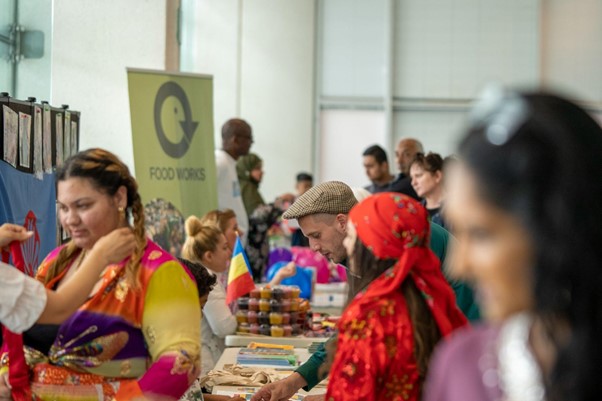
The Welcoming Communities event was coordinated by Terezia Rostas of Care for Young People’s Future, and involved a range of community organisations from Sheffield and beyond, Sheffield Museums and Roots and Futures.
Making a Difference Through Heritage Strategy and Policy
To ensure we design and deliver effective and meaningful policy outcomes, the Roots and Futures project partnered with two heritage strategy and policy-making organisations: Sheffield City Council’s City Futures team and Joined Up Heritage Sheffield. Joined Up Heritage are authors of Sheffield’s grass-roots led heritage strategy. This ten-year strategy was published in 2021, and therefore our current project offers a timely opportunity to invest in delivering this strategy in ways that celebrate and value every cultural community across the city.
We are working with these decision-makers to identify ways of embedding and scaling our research to address city-wide priorities within, for example, the Sustainable Neighbourhoods Agenda and the city’s Race Equality Commission. We aim to help produce a valuable legacy through:
- an immediately implementable policymaker-facing action plan, presented to members with responsibility for culture and heritage in Sheffield City Council;
- a practice-based toolkit for organisations to use when delivering inclusive heritage-focused activities that can sustain the sharing of evidence and insights that will drive sustainably inclusive policy;
- tailored outputs for all community partners ensuring we deliver an immediate legacy of the project that fits their needs.
Creating a Community Heritage Project from the Ground Up… During a Pandemic
Roots and Futures began in 2020 through the Sheffield team’s shared desire to address a pressing local need for greater inclusivity in community heritage work. We benefited greatly from a new, dynamic knowledge exchange team in the Faculty of Arts and Humanities, and support from the Partnerships and Regional Engagement team and the Higher Education Innovation Fund, awarded by the University of Sheffield, to build new partnerships and explore new opportunities.
Our plans to trial our model of engaged working in the north of the city with new partners Zest and Kelham Island and Neepsend Community Alliance (who represent the communities immediately north of Zest’s main focus) were derailed by Covid lockdowns. A summer consultation programme had to rapidly evolve into a social-distancing proof, interactive ArcGIS StoryMap web app, which enabled participants to explore the built heritage in their local area, record it on a digital map and share why it was important to them. The app provided a reason to get out and explore during people’s single permitted daily trip outside their houses, but could also be updated without leaving home with memories and old photos. We were finally able to undertake in-person consultations with Zest in summer 2021, and the current Roots and Futures project was born!
The Roots and Futures StoryMap app, which has been viewed more than 6,500 times:
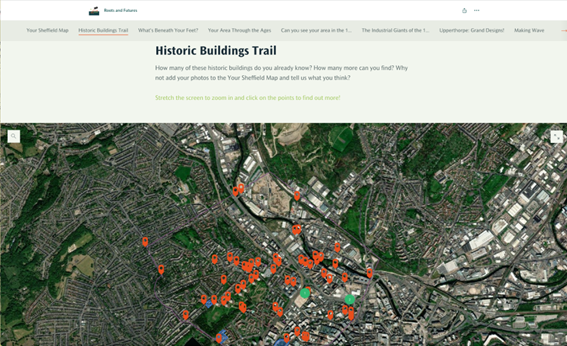
Part of the Roots and Futures StoryMap app where memories and stories of locations across the northern part of the city centre were shared during lockdown.
The summer 2021 consultations formed a hybrid online/in person museum exhibition which was on display at Kelham Island Museum between September 2021 and April 2022 and was visited online by more than 500 viewers. We plan for the exhibition to go ‘on tour’ in the future around the parks and green spaces where the original consultations took place.
Who are the Roots and Futures project team?
The academic team
- Dr Lizzy Craig-Atkins, University of Sheffield (principle investigator, Archaeology)
- Dr Izzy Carter, University of Lincoln (co-investigator, History)
- Dr Courtenay-Elle Crichton-Turley, University of Sheffield (postdoctoral research associate, Archaeology)
- Jonathan Bradley (KE project manager, previous chair Joined Up Heritage Sheffield)
- Dr Alex Rajinder Mason (Project Manager, University of Sheffield Centre for Equity & Inclusion)
The community team
- Olivier Tsemo, Rob Cotterell and the visitors to SADACCA Day Care Centre
- Tracy Brown and the Black Ladies Group (MCDT)
- David McNeil, Aisha Jones and the Tea Tent team (Zest)
- Hanna Ramsden and the SOAR community champions
- Aidan Mascarenhan-Keyes, RUBIC² Project Coordinator at Chilypep , with Happy Group
- Patrick O’Shea and the young people who created the My History project at Astrea Academy
- Terezia Rostas (CFYP), Rosa Cisneros and Welcoming Cultures
- Sally Rodgers and Rebecca Hearne (Heeley City Farm)
The strategy and policy team
- Valerie Bayliss (Chair), Tom Dabbs and the members of Joined Up Heritage Sheffield
- Rebecca Maddox and Jenneffer Dennis (Sheffield City Council).
Roots and Futures 2020-21 partners
- Kelham Island and Neepsend Community Alliance
- Kelham Island Neighbourhood Forum
- Kelham Island Museum
Project Updates
To keep updated with our project, visit the Roots and Futures blog and follow us via our Twitter hashtag #RootsandFutures. You can also find all the links to project outputs so far and the project report from 2020-21 on our University of Sheffield website.
Roots and Futures is currently funded by AHRC grant AH/W008254/1.
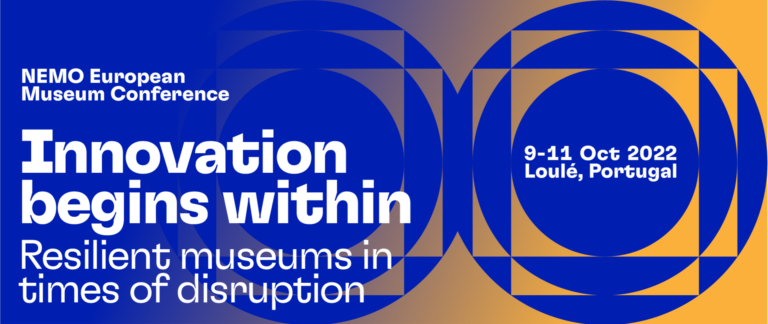 How can innovation be a structural component of museum operations?
How can innovation be a structural component of museum operations?


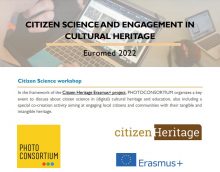
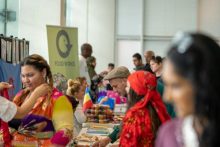




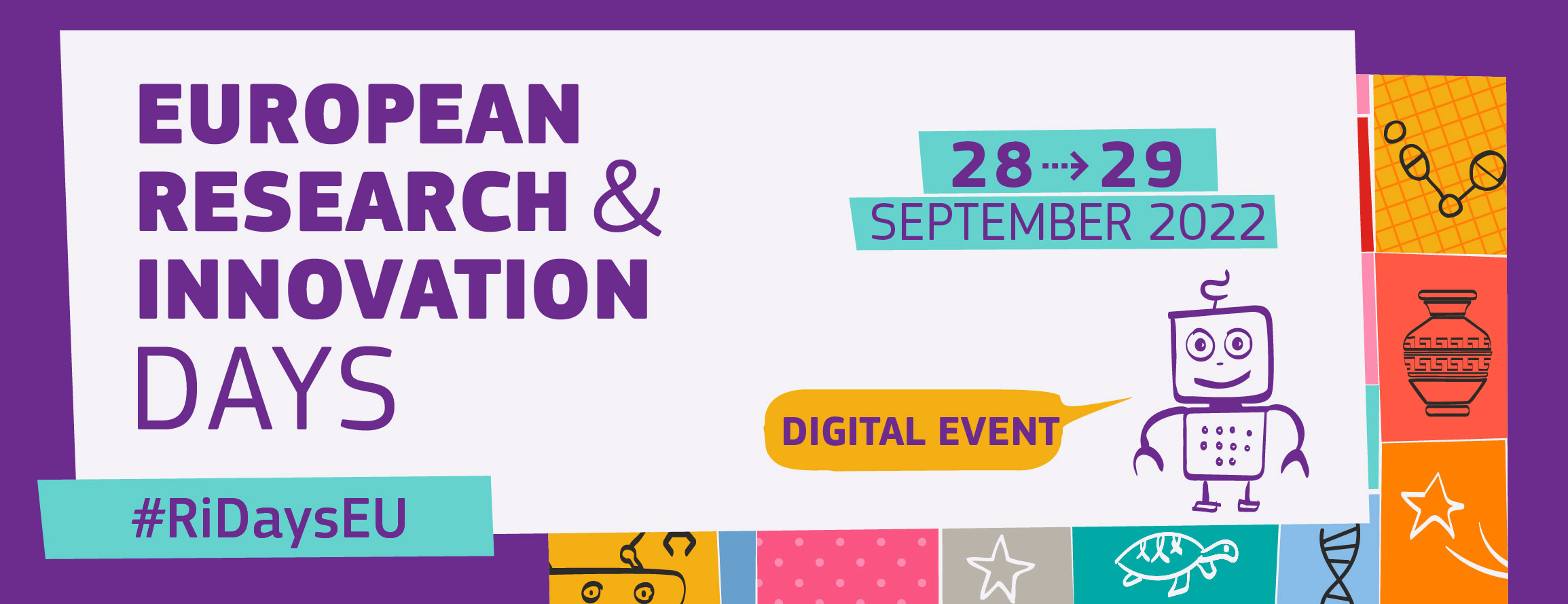 The 2022 edition of European Research and Innovation Days, the European Commission’s annual flagship Research and Innovation event, will be held virtually on 28 and 29 September.
The 2022 edition of European Research and Innovation Days, the European Commission’s annual flagship Research and Innovation event, will be held virtually on 28 and 29 September.
 The H2020
The H2020 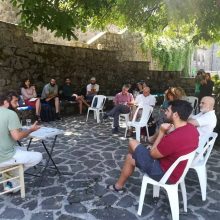
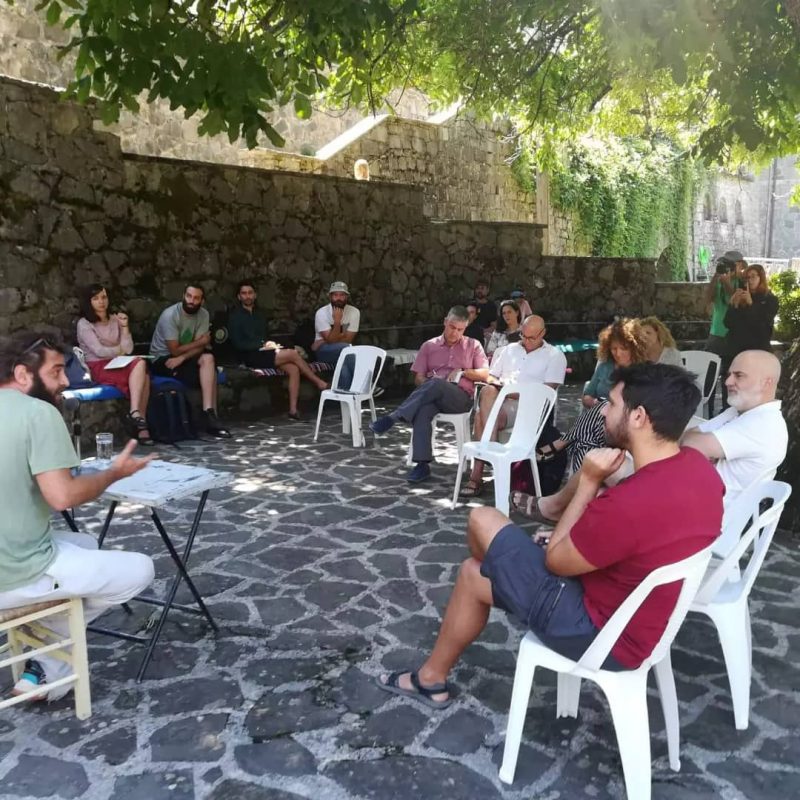
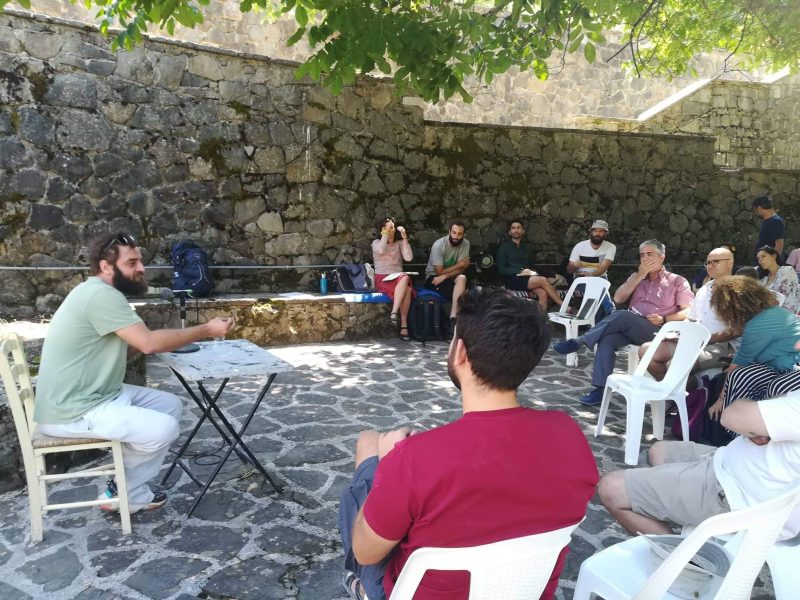
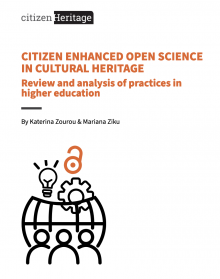
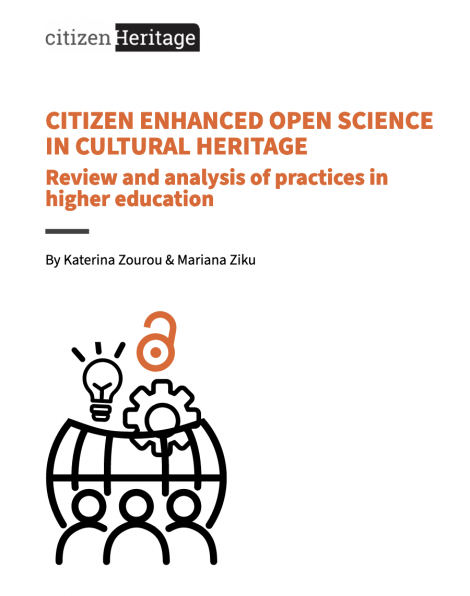 CitizenHeritage, funded within the Erasmus+ programme of the European Commission, is a project about the involvement of citizens in cultural heritage as a booster for sustainable university research and higher education.
CitizenHeritage, funded within the Erasmus+ programme of the European Commission, is a project about the involvement of citizens in cultural heritage as a booster for sustainable university research and higher education.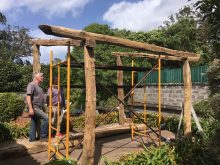
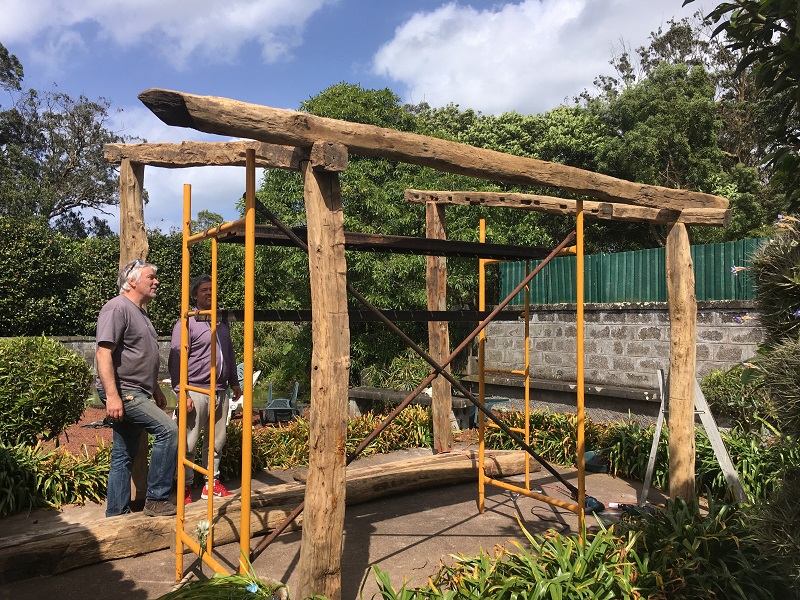
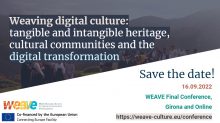
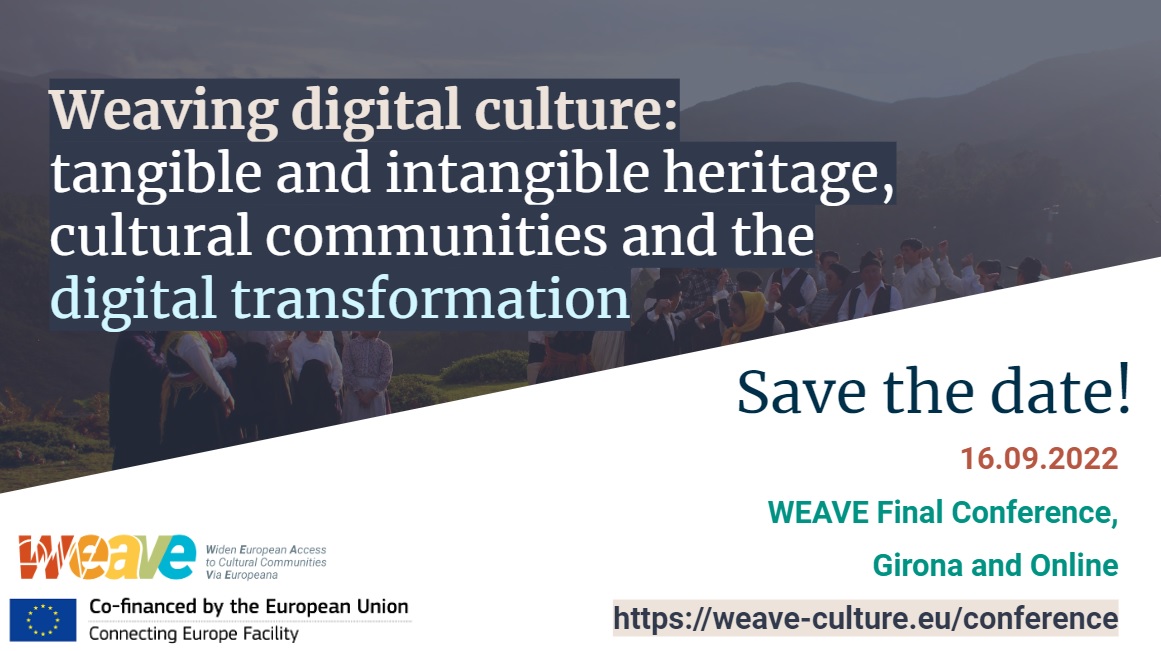
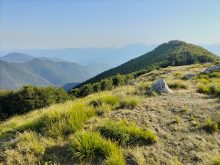
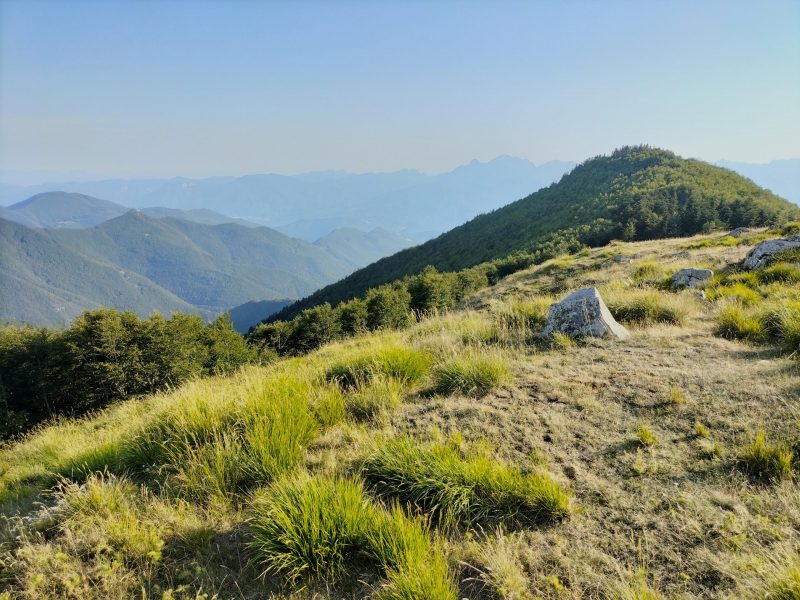
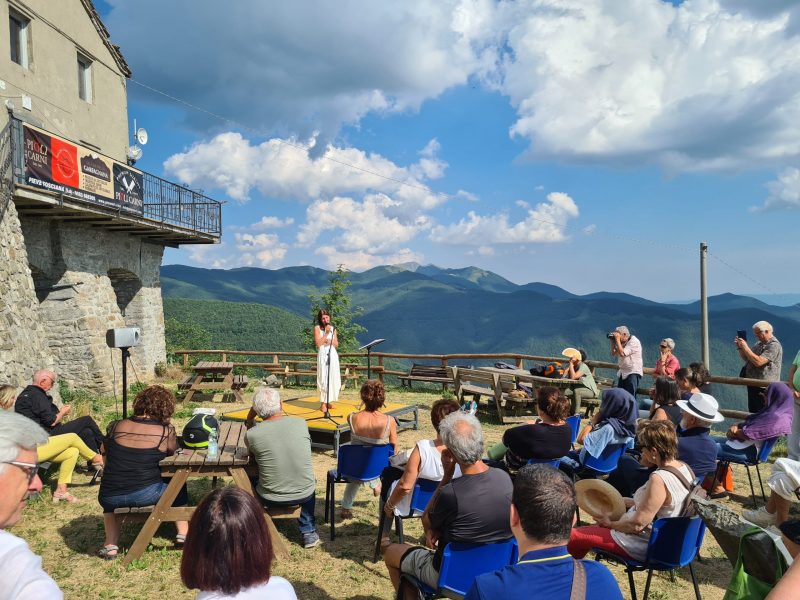
 If you have interesting news and events to point out in the field of digital cultural heritage, we are waiting for your contribution.
If you have interesting news and events to point out in the field of digital cultural heritage, we are waiting for your contribution.





